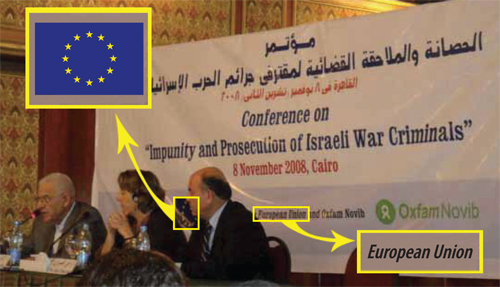UPDATES
Is limiting foreign government funding of Israeli NGOs “undemocratic”?
November 15, 2011 | Tzvi Fleischer

There has been some controversy in Israel over a proposal coming out of Israel’s Ministerial Committee for Legislation which would limit or tax the ability of foreign governments or international bodies like the UN to fund Israeli NGOs – which is a significant problem, as NGO Monitor, led by Dr. Gerald Steinberg, has made clear in numerous reports and op/eds.
The NGOs concerned unsurprisingly do not like it, insisting such a move is undemocratic and/or “shameful” – though some Israeli NGOs, especially those neither associated with the Israeli left nor dependent on such foreign government funding, are in favour of the legislation in principle. (NGO Monitor’s statement on the reform – emphasising that current efforts to ensure funding transparency for NGOs should be given time to work first – is here.)
American law professor David Bernstein has an excellent post challenging the idea that such a law (and it is by no means clear that such a law can get through the Knesset, Israel’s parliament, or what its provisions would be if it did) would be undemocratic. He wrote:
It turns out that various politically active, generally far left-wing Israeli NGOs, some of which deny the very legitimacy of the Israeli government, get funding from various European governments (see, e.g., this detailed NGO Monitor Report, which focuses only on funding through the EU itself; member states provide substantial additional funding). Some of these organizations, for example, support the international “Boycott, Divestment, and Sanctions” efforts against Israel. (Exactly why European governments fund NGOs whose views diametrically oppose the governments’ official policies vis a vis Israel is an interesting question that we’ll leave to another time).
These NGOs are often given special legitimacy in the international media because they are purportedly Israeli NGOs. NGO Monitor’s investigations show that many of them are, in fact, organizations with little if any domestic base within Israel and instead represent the views of the international far left with a fig leaf of Israeli leadership drawn from its domestic far left.
Israelis, tired of this rather subtle form of ideological warfare emanating from their purported friends among governments in Europe, are now considering a measure that would ban foreign government funding of political NGOs above a certain low level. (UPDATE: Many of these organizations have also received substantial funding from private organizations like the Ford Foundation and the New Israel Fund, but the legislation in question does not target such private contributions.) Whether this particular measure is workable, and whether it’s the best way to deal with the situation, I’ll again leave for another time.
What’s striking, however, is the EU’s reaction:
The EU’s ambassador to Israel, Andrew Standley, contacted the prime minister’s national security adviser, Yaakov Amidror, on Thursday and warned him that passage of the legislation could harm Israel’s standing in the West as a democratic country.
So the idea here, obviously is that a “democratic” country must allow foreign governments, who represent foreign citizens and not Israelis, to interfere in its domestic politics by supporting organizations that range from the fringe left to beyond the fringe left.
Now that is chutzpah! Imagine if Israel was funneling millions of Euros annually to Basque separatists in Spain, Flemish nationalists in Belgium, or to one of numerous neo-fascist fronts in Norway and France. I have a very strong feeling that the EU’s views of what “democratic” countries must tolerate from foreign governments would change rather quickly…
Tzvi Fleischer
Tags: Europe





